Leszek Kolakowski - What’s socialism? Let me tell u what it isn’t, a state in which:
One responsible for one’s ancestors;
A crime to be a bro, sister, son or wife of a criminal;
Wants all citizens to have same views on philosophy, foreign policy, economy, literature & morality
One responsible for one’s ancestors;
A crime to be a bro, sister, son or wife of a criminal;
Wants all citizens to have same views on philosophy, foreign policy, economy, literature & morality
Where history is in the service of politics
Doesn’t like when citizens read old newspapers
When the content of all the newspapers is the same
Gov controls all forms of social organisation
Many decent & courageous people but a study of politics & gov won’t allow u to discover
Doesn’t like when citizens read old newspapers
When the content of all the newspapers is the same
Gov controls all forms of social organisation
Many decent & courageous people but a study of politics & gov won’t allow u to discover
Communism utopias both egalitarian & despotic:
They promoted the ideal of perfect equality, but ruled by an enlightened elite to safeguard this equality
Jacobin Left believed ideal society to be the same time strict egalitarian & despotically governed, a contradiction.
They promoted the ideal of perfect equality, but ruled by an enlightened elite to safeguard this equality

Jacobin Left believed ideal society to be the same time strict egalitarian & despotically governed, a contradiction.

Communism success was to absorb & assimilate all major social grievances & turn into advantage.
Dominant ideology was not communism but anarchy: all power to the soviets (councils).
Land for peasants = mass expropriation of peasantry & chaining peasants to land.
Dominant ideology was not communism but anarchy: all power to the soviets (councils).
Land for peasants = mass expropriation of peasantry & chaining peasants to land.
Intellectuals saw Bolshevism as a global sort of utopian technology in which all human problems’d be resolved & misery eradicated.
For the European writers that joined the communist party, the horror of war was the main motivation.
For the European writers that joined the communist party, the horror of war was the main motivation.
Other motives - fascination w/ barbarism sometimes found in intellectuals; the absolute beginning of a new era, a break from past, freedom from shackles of bygone age.
Ethos of a culture unbounded, the freedom from inherited tradition, desire to shock made Bolsheviks attractive.
Ethos of a culture unbounded, the freedom from inherited tradition, desire to shock made Bolsheviks attractive.
Historical circumstances helped the rise of communism: end of 19th century, WWI, Great Depression, National Socialism in Germany, Spanish Civil War, & turbulent events in China.
The Great Depression was the perfect opportunity promise a society w/o unemployment & insecurity.
The Great Depression was the perfect opportunity promise a society w/o unemployment & insecurity.
At a time when millions dying from Soviet gov’s artificially induced famine in the Ukraine, a significant # of Western intellectuals saw Soviet state as a bastion of peace & revolutionary humanism, new world where people’s be equal, free from insecurity & confident of the future.
If communism successfully exploited genuine social grievances, many of them the preoccupation of both liberals & socialists in Europe, this doesn’t mean it resolved these issues or tried
Brought disaster in all the social, cultural, national & international issues it championed
Brought disaster in all the social, cultural, national & international issues it championed
Communism was a gigantic facade, & the reality concealed behind it was the sheer drive for power, for total power as an end in itself.
Under communism, the brutal persecution of religion & that human beings expendable & individual lives as instrument of the ‘greater whole’.
Under communism, the brutal persecution of religion & that human beings expendable & individual lives as instrument of the ‘greater whole’.

 Read on Twitter
Read on Twitter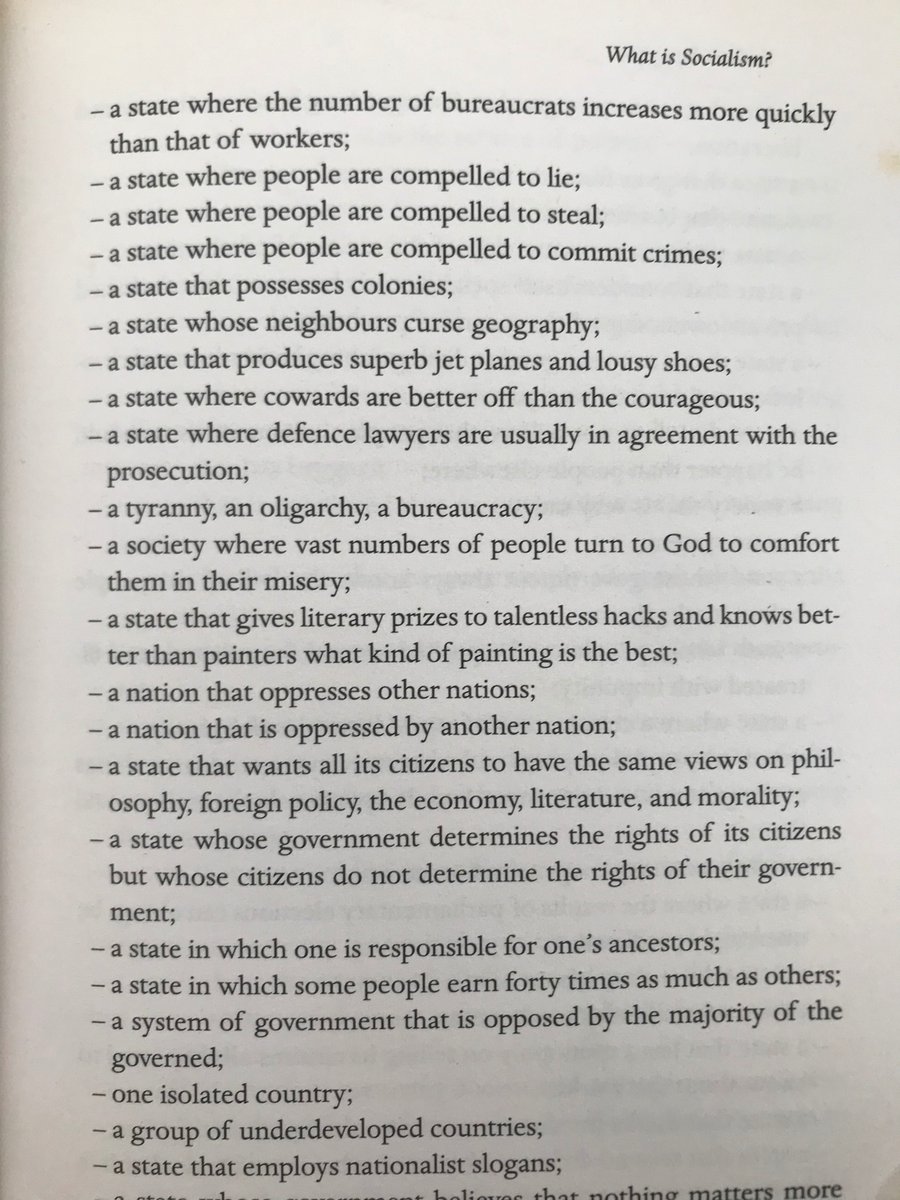
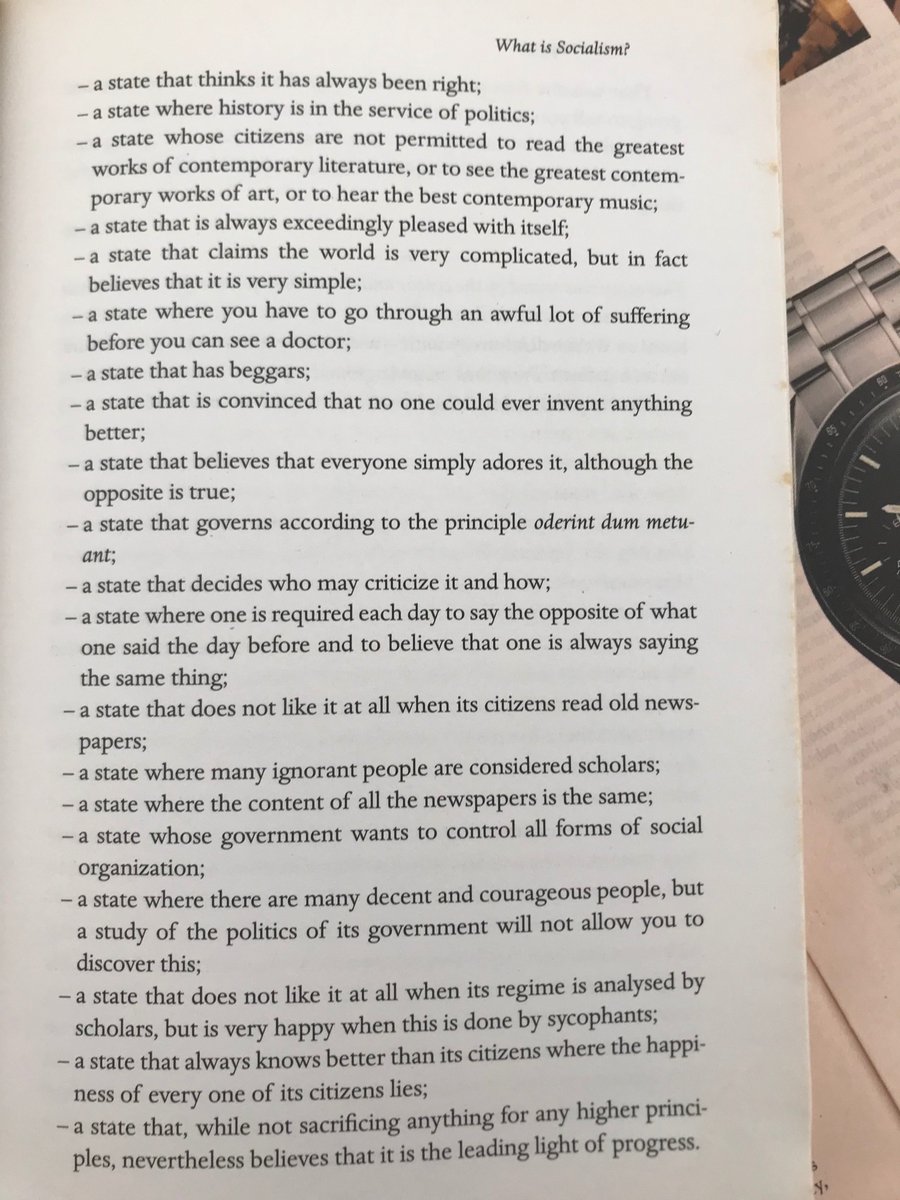
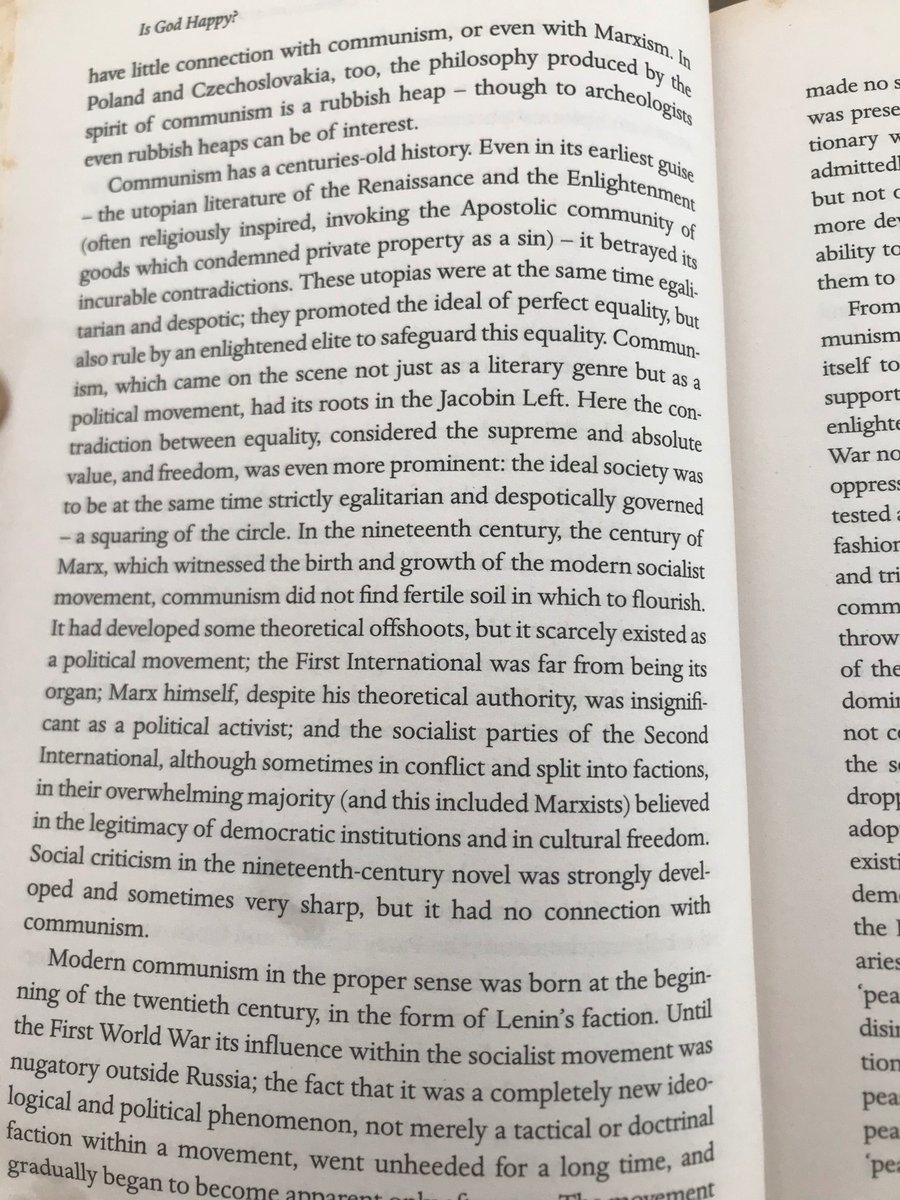
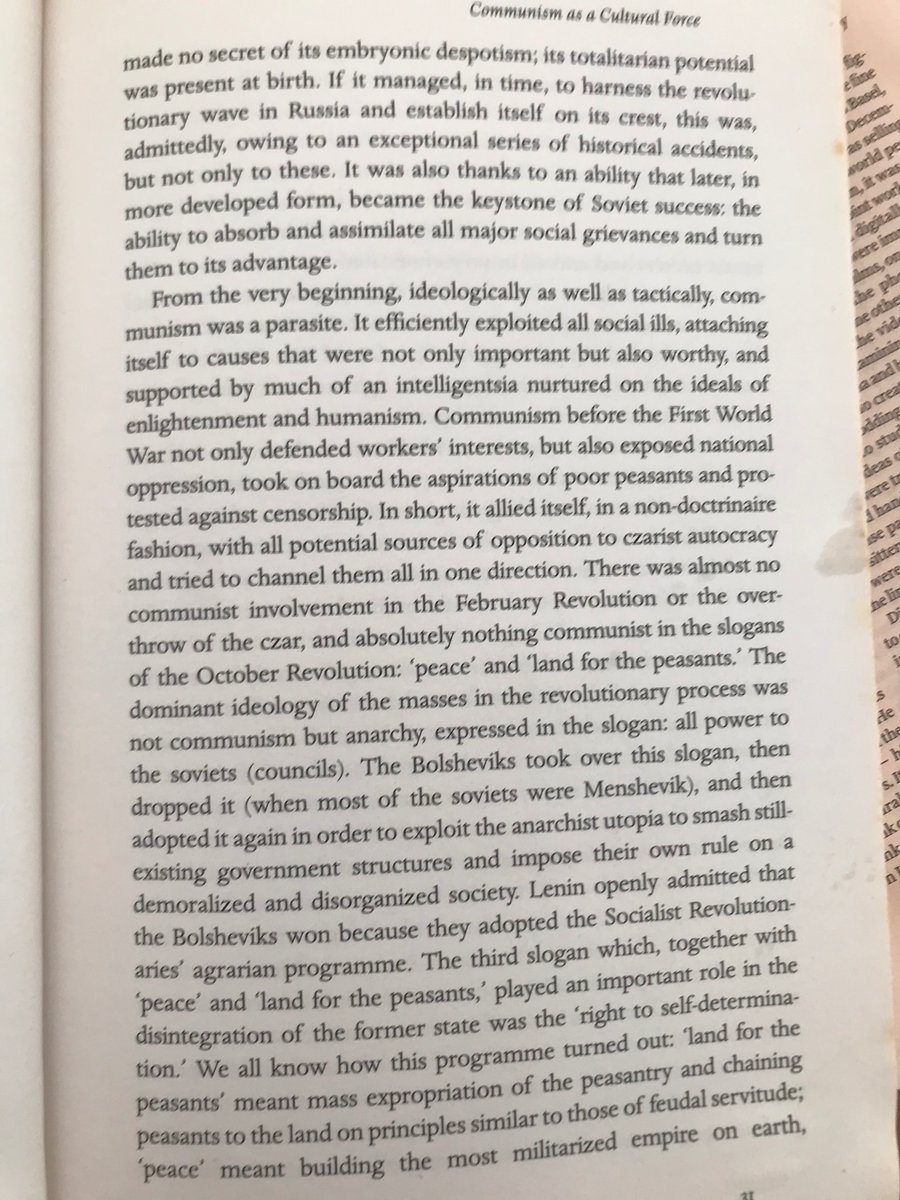
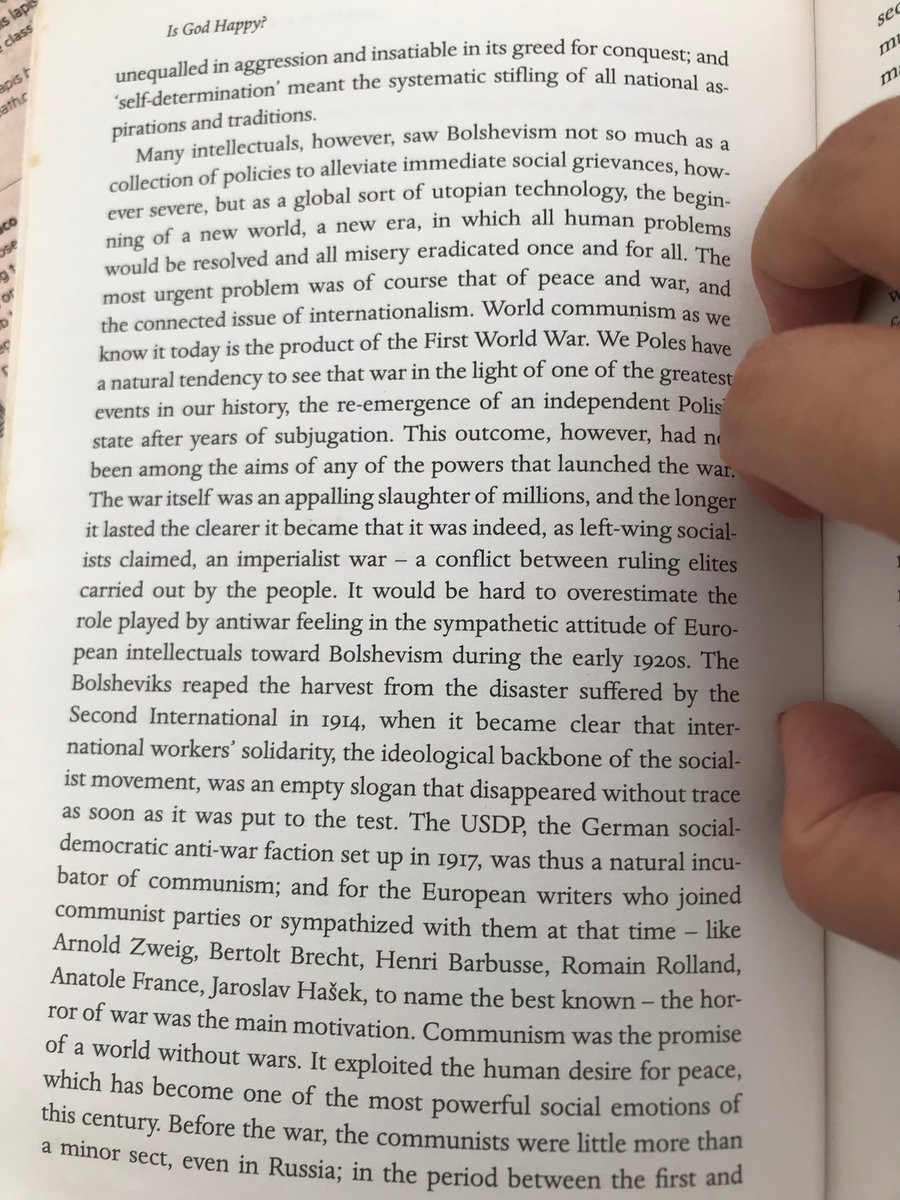
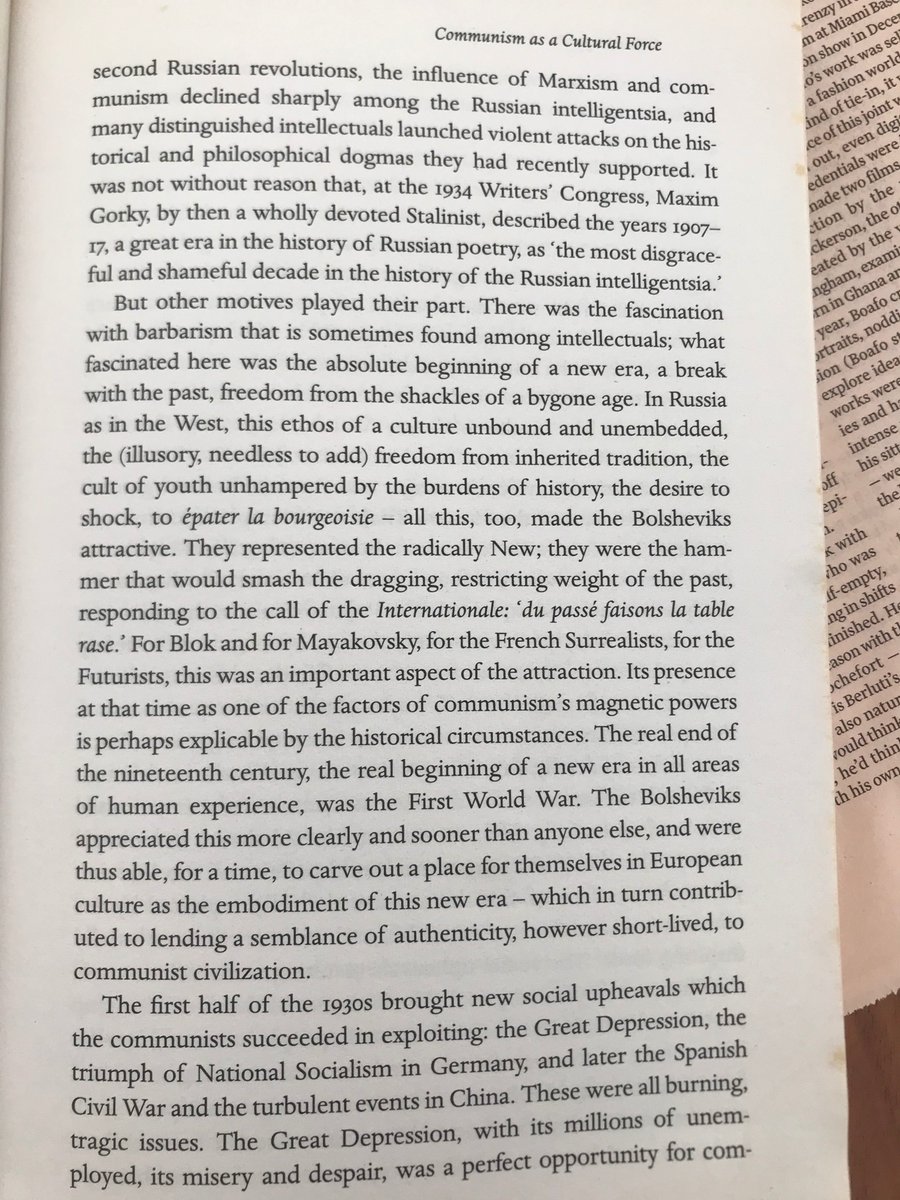
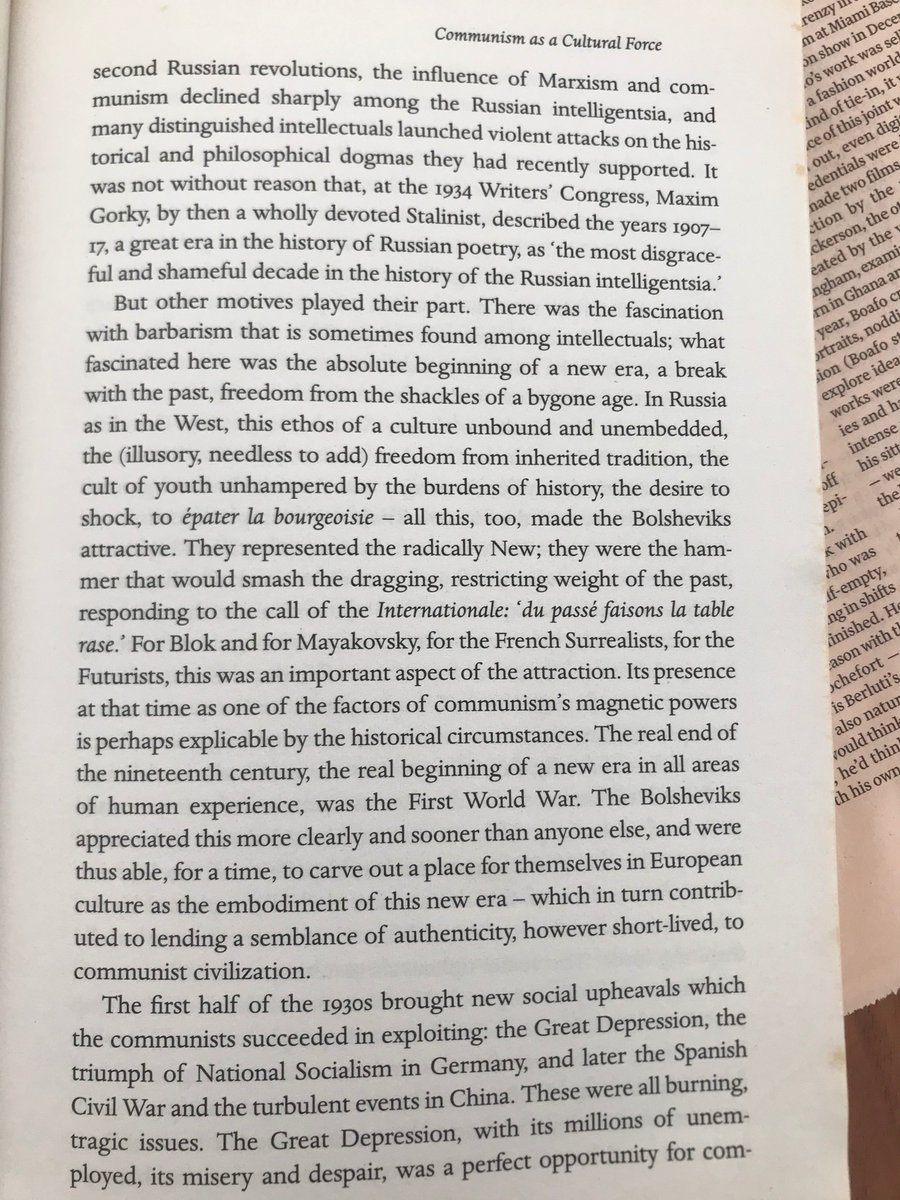
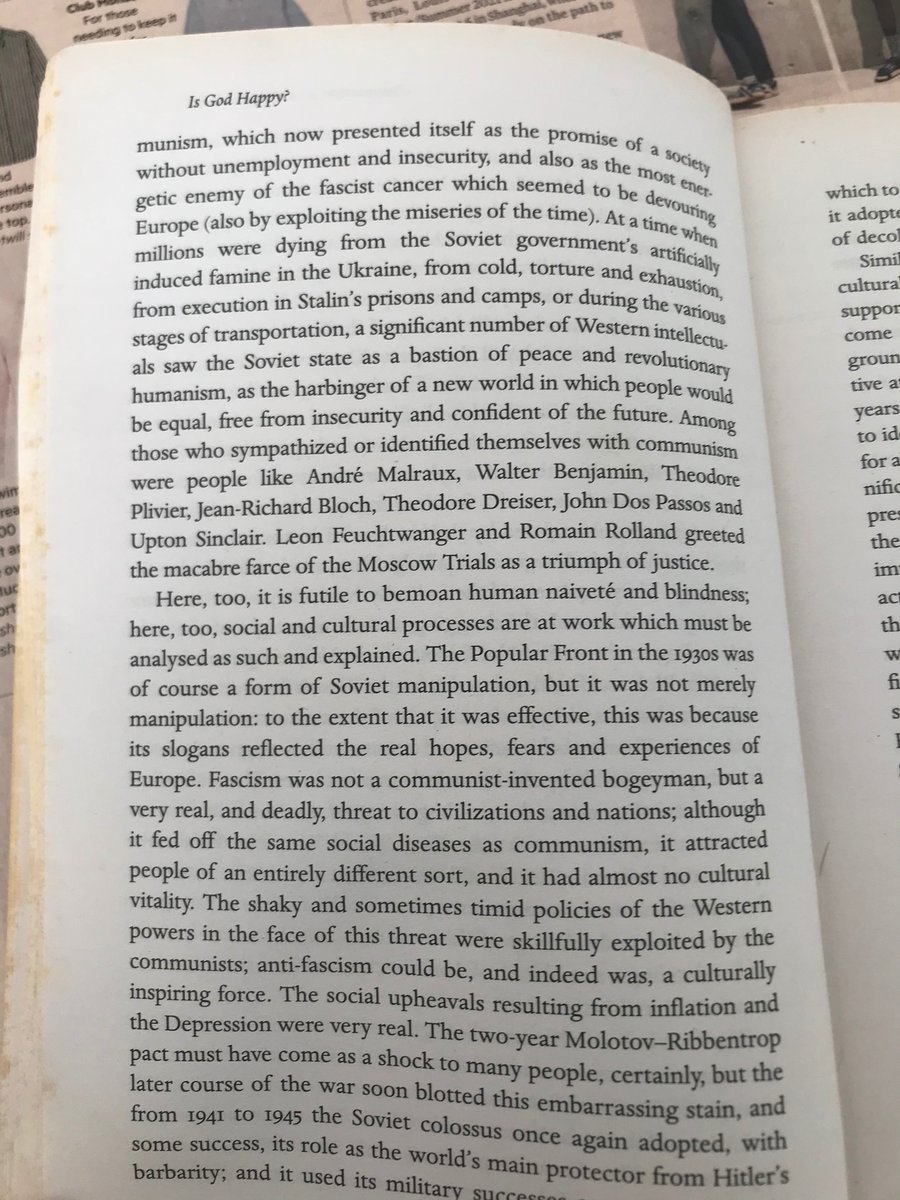
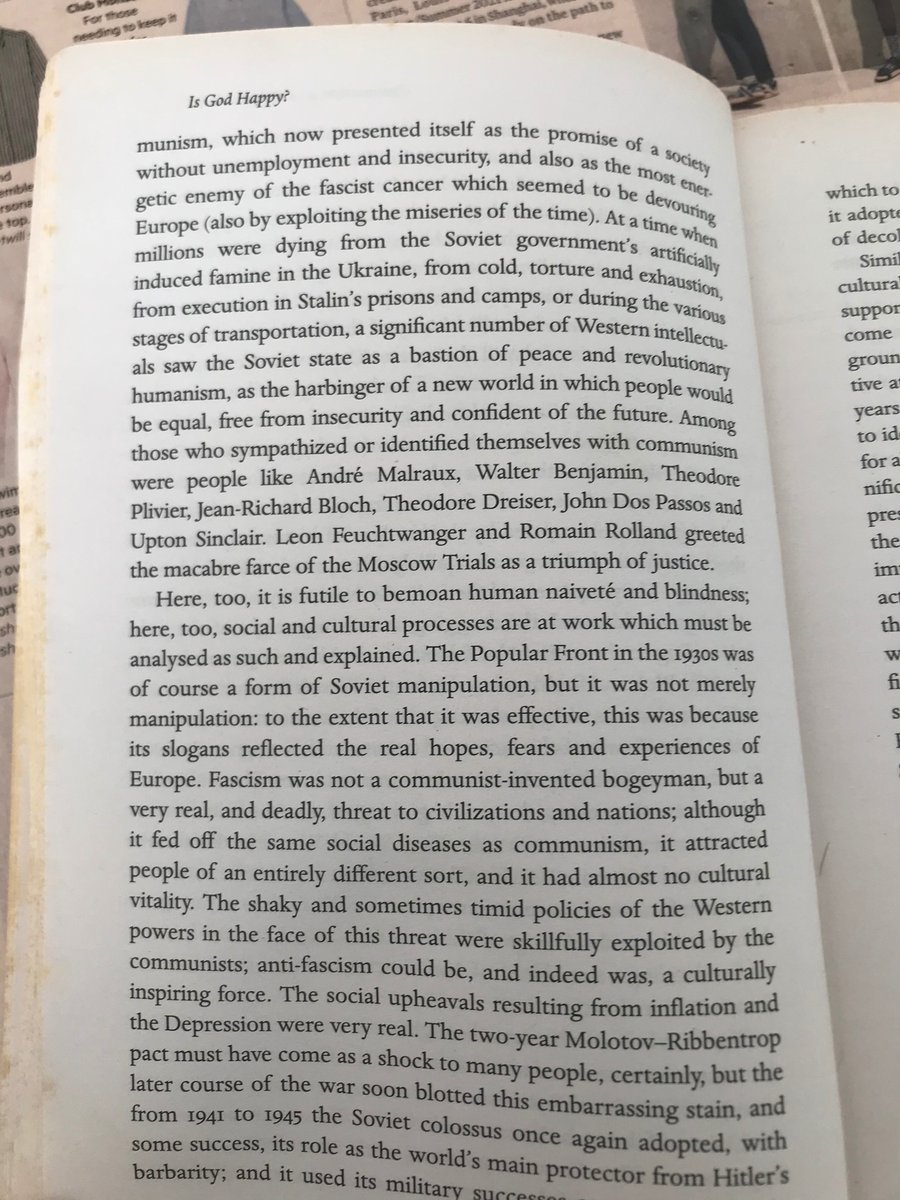
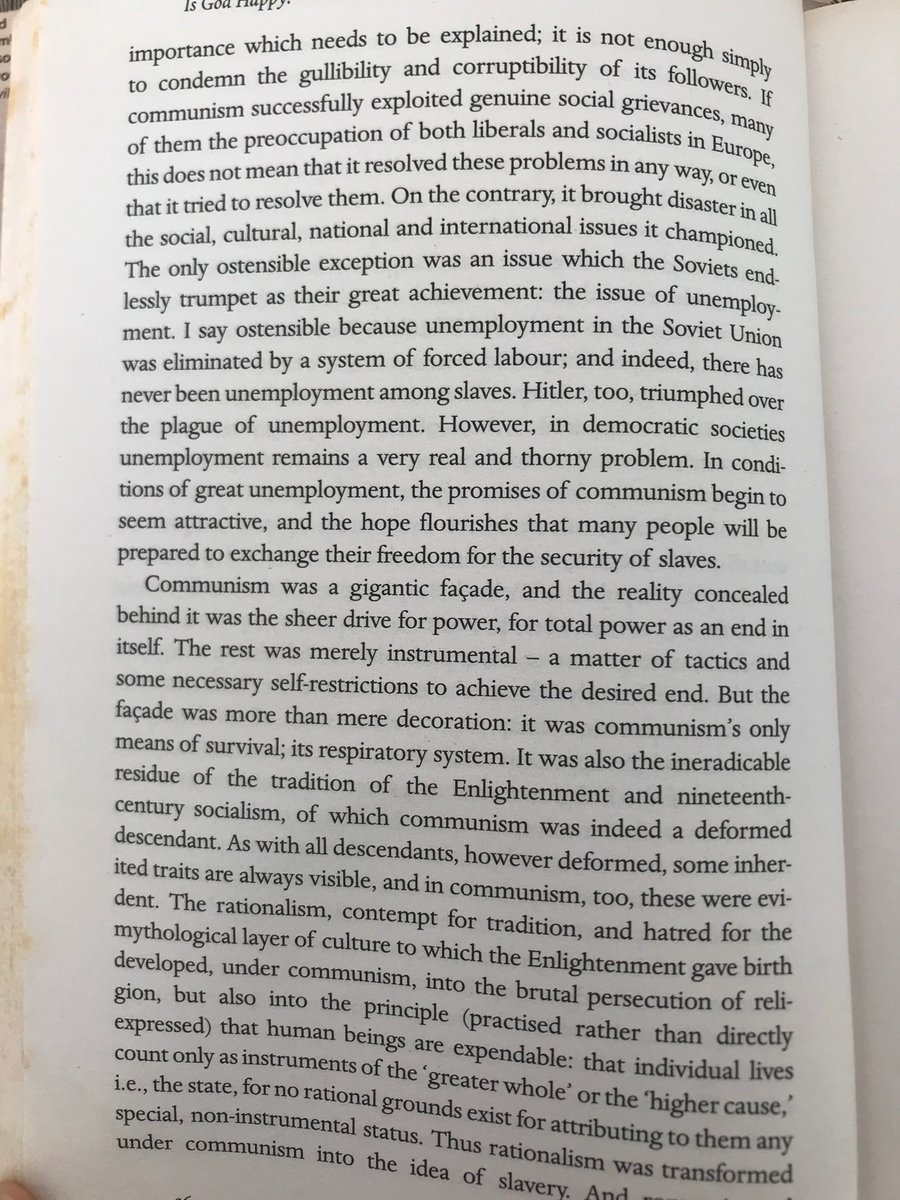
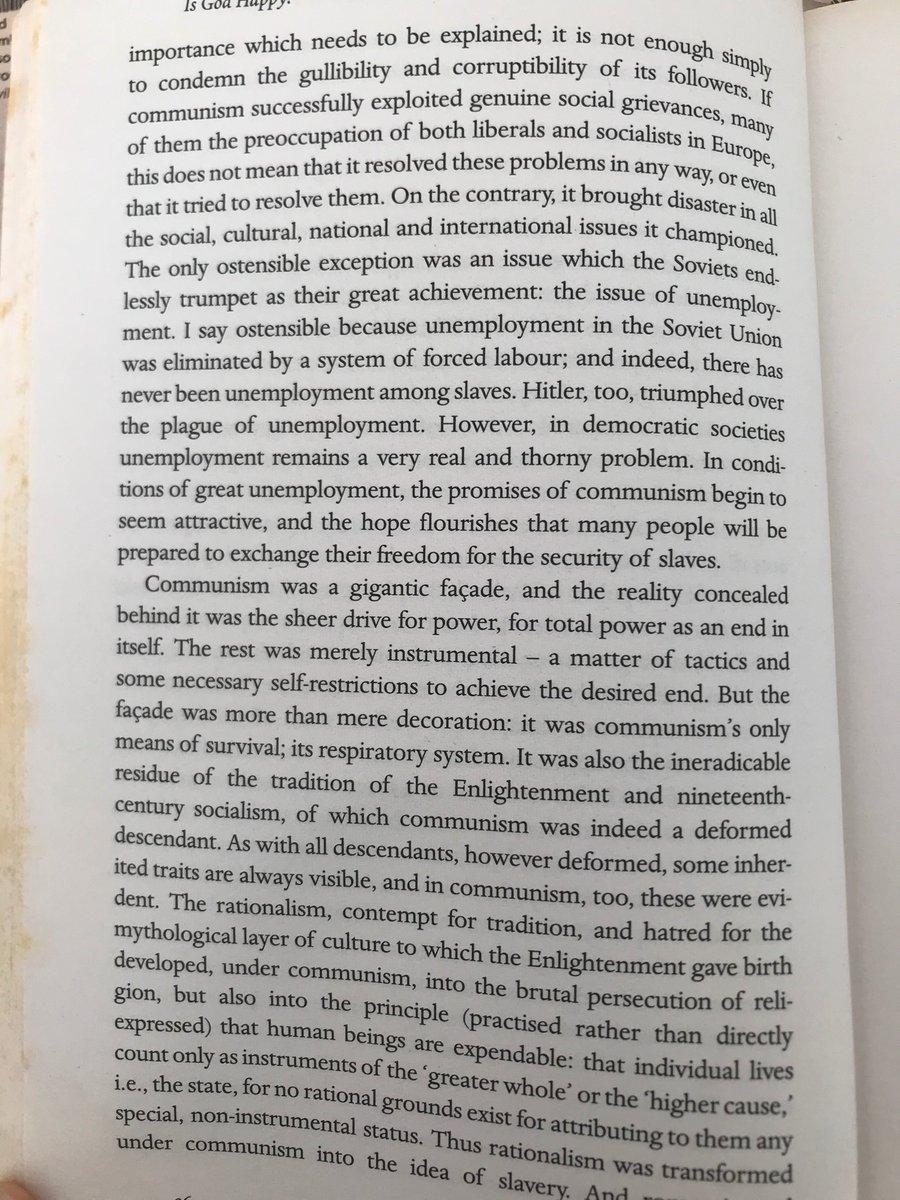
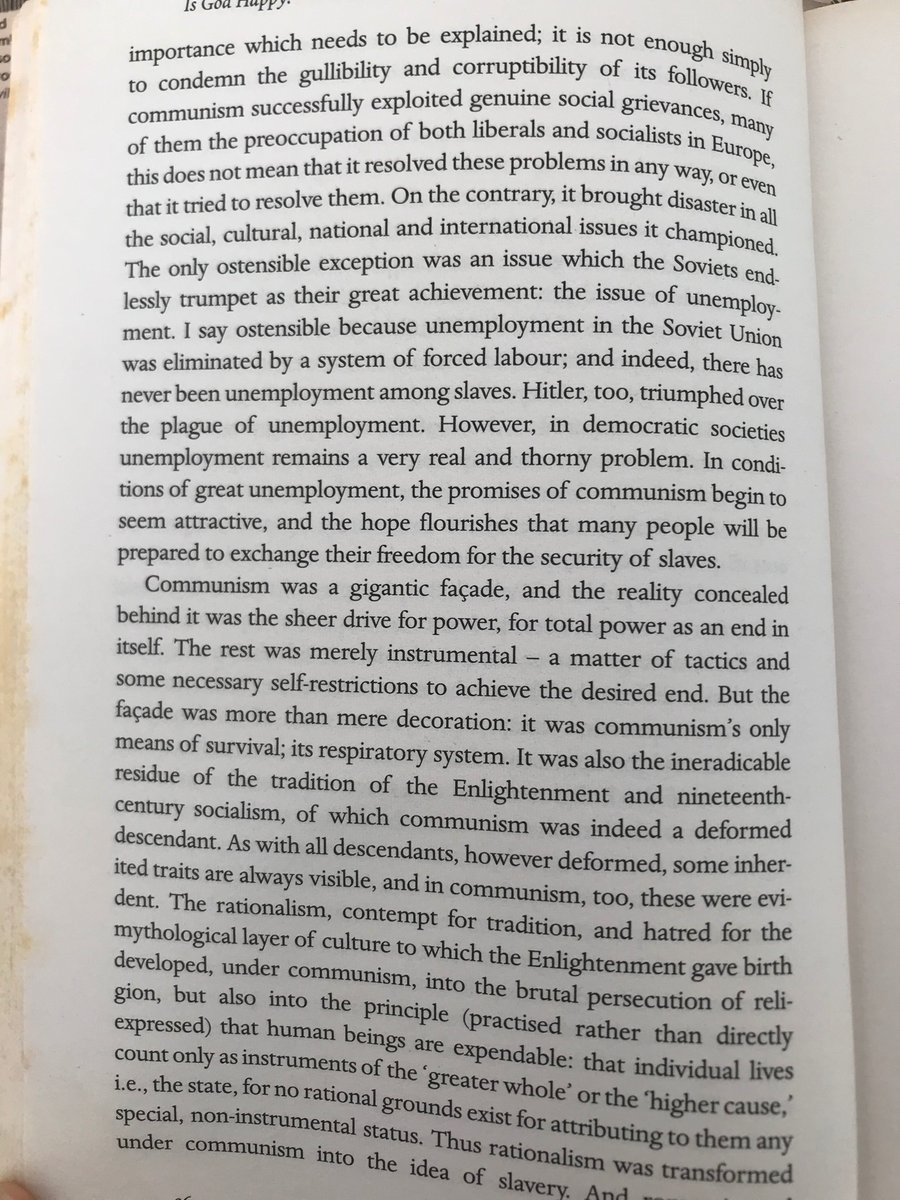
 Gotta run
Gotta run  , literally time to the mountain
, literally time to the mountain  . On page 37 of this book if interested do read on ur own! Have a great weekend!
. On page 37 of this book if interested do read on ur own! Have a great weekend!



